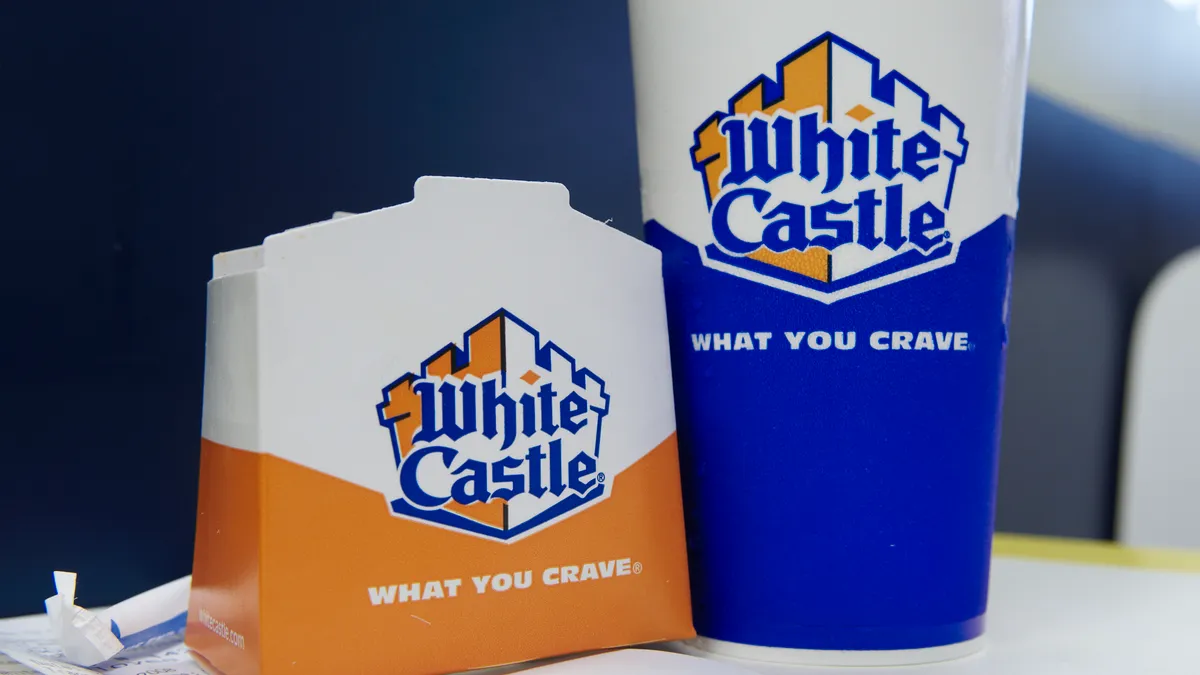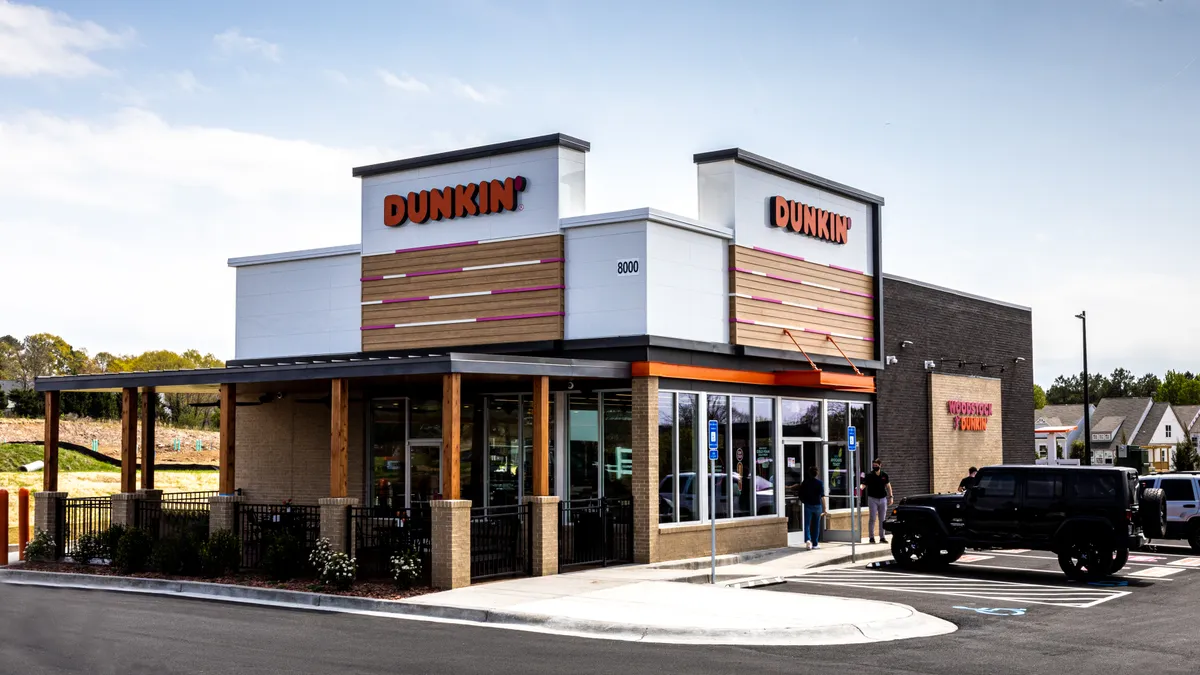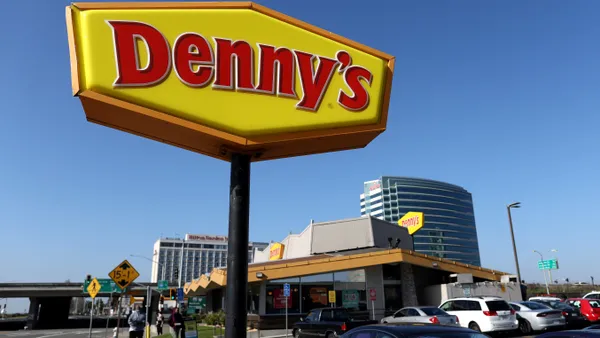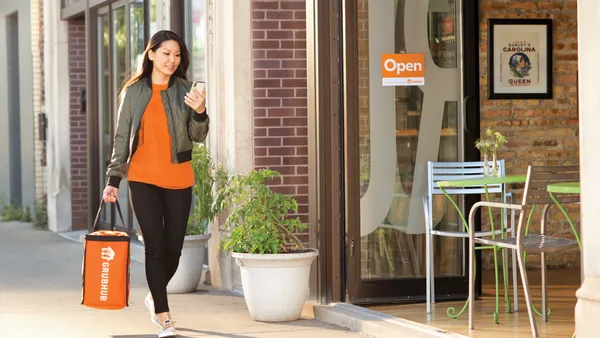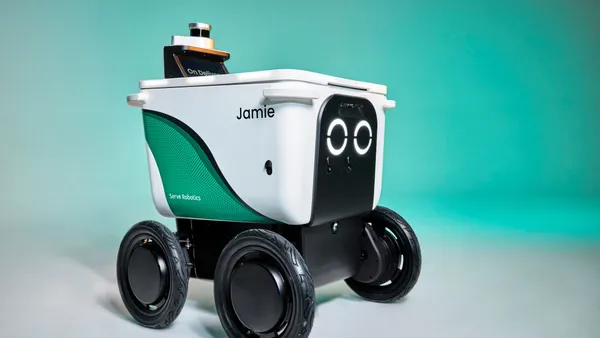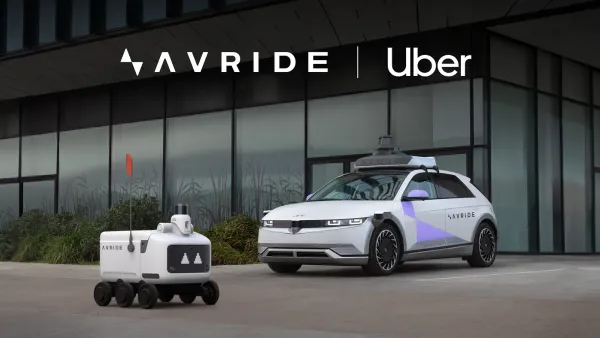UPDATE, Feb. 26, 2021: White Castle did not reopen its ghost kitchen operation in Orlando, Florida on Thursday as originally planned, and will instead wait to resume operations when its brick-and-mortar location in Orlando opens in late spring, according to Orlando Business Journal.
"The overwhelming number of orders for White Castle has been humbling and reinforces we made the right choice to choose Central Florida as the site for our next permanent destination Castle," Jaime T. Richardson, vice president for White Castle Management, told the publication. "Because of the relatively small size of the virtual kitchen and the incredibly high number of orders, running the virtual kitchen isn't currently sustainable."
Dive Brief:
- White Castle launched a virtual kitchen in Orlando, Florida, on Tuesday, but closed operations within two hours following overwhelming demand from online orders, according to Fox35 Orlando.
- The company said that location will be closed on Wednesday to give it more time to prepare, but will reopen Thursday for online pickup orders only. Delivery was originally offered within a 15-mile radius through Uber Eats, but that service is suspended until further notice. The company plans to offer it again soon.
- This marks White Castle's latest foothold in the ghost kitchen segment. The chain also has a space inside Kitchen United's Scottsdale, Arizona, site, which opened December 2019.
Dive Insight:
White Castle's Orlando ghost kitchen has helped create early buzz for a new location set to open in the city this spring. That restaurant will be the company's largest at 4,567 square feet, offering indoor and outdoor seating and two drive-thru lanes. White Castle hasn't been in Florida in over 50 years, leaving the state in 1968 to focus on markets where it had more restaurants.
The fast food chain has done well in its newest markets, selling over 4.2 million million sliders — more than any other White Castle location — during its first year in its physical Scottsdale, Arizona, site, which opened October 2019 months before it added the ghost kitchen operation nearby.
While many brands have been using ghost kitchens to test the waters of a new market, White Castle appears to be deploying them alongside new locations. But in order to make its newest ghost kitchen a success, White Castle's throughput strategy will need to be tinkered. It may need to increase labor — it originally hired 25 employees at the site — or adjust its maximum order of sliders, which was originally set at 60, to meet demand.
Online ordering is a growing focus for the chain of late, and it launched its first systemwide loyalty program in September. The program, which was trialed last summer, was accelerated to meet consumer demand for more contactless experiences and expand its digital offerings.
Off-premise has been increasingly lucrative in the restaurant industry since the start of the pandemic last March. Sixty-five percent of QSRs said that off-premise now makes up a larger portion of their sales compared to before COVID-19 and 35% of QSRs have devoted more resources to off-premise operations since the outbreak started, according to the National Restaurant Association's 2021 State of the Restaurant Industry report. There is also plenty of room to grow in the ghost kitchen segment, with less than 5% of restaurants adding delivery from this channel during the pandemic.



